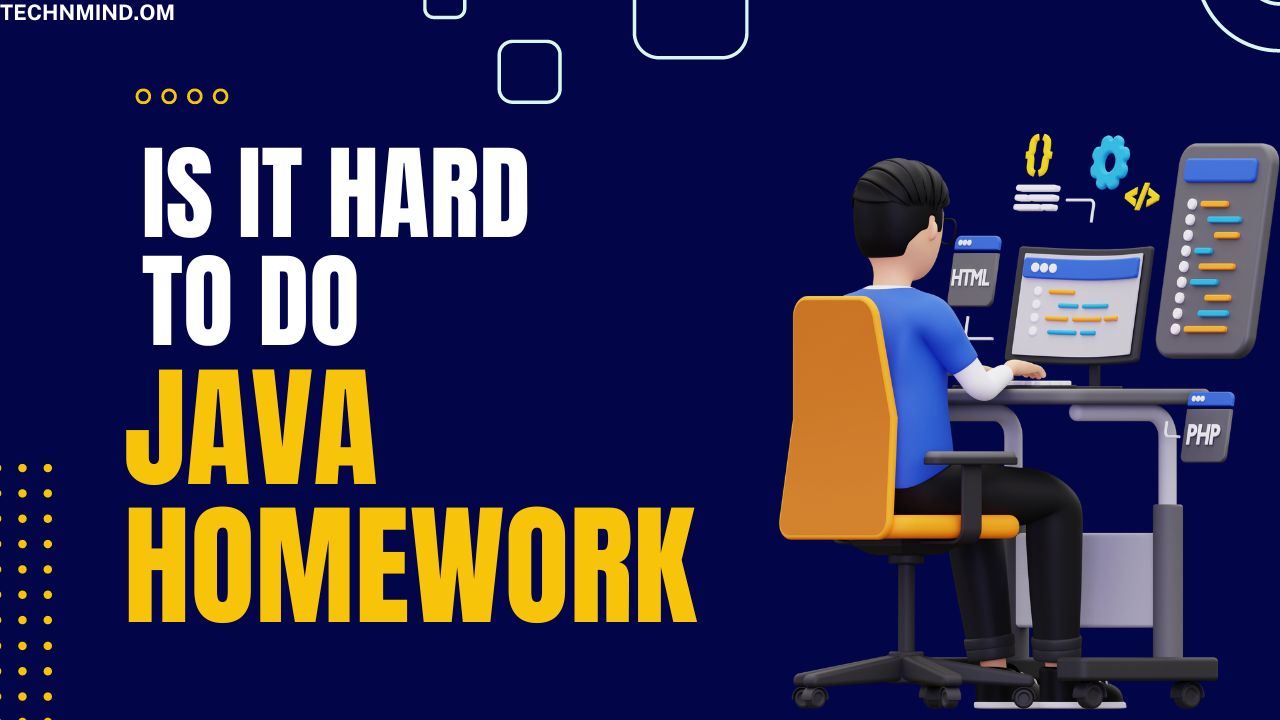Whether Java homework is difficult from a programming point of view is what we will talk
about in this article. The situation is twofold. I’ll try to explain.
Java is a simple language
The Java language itself is one of the simplest on the market:
- It uses the standard C-like syntax, which is simple and straightforward to use. Moreover,
Java was created as a simplified version of the C ++ language, so a lot of unnecessary
was thrown out – only the most simple and necessary constructions remained. - In addition, the Java language follows the principle of 100% backward compatibility.
Any code that you wrote 20 years ago will compile in modern Java without any problems
and will work. Therefore, you can easily learn the syntax of Java 1.2 and 1.3, run the
code on modern Java 13, and everything will work. Having learned this language once,
you do not need to understand some new updates every six months. Do not forget
previously acquired knowledge, as it will be relevant to the modern language. And it’s
very convenient.
But not everything is so simple, especially when it come to doing Java tasks. A lot of students
think, “I don’t know how to do my Java homework.” Fortunately, they can turn to special
services, tutors, and forums to deal with their assignments easier.
Java is hard as hell
Now I’ll tell you why Java and homework in it are still difficult.
The Java language turned out to be very convenient for enterprise companies. Almost all global
systems are written in Java. So that programmers do not write the same thing, all the available
developments began to be collected and transferred to libraries and frameworks. Over time,
frameworks have become more sophisticated.
Now a Java developer almost never writes code without using frameworks. Almost every line of
modern code is an appeal to some kind of framework. One correctly written line does a lot of
things at once. This is convenient for professional programmers – it is enough to write just a line,
and an intergalactic blaster has already lined up in front of you.
Yes, it is convenient, but not for beginners who need to deal with Java homework. A beginner,
who only knows syntax looks at this line, sees how something works but cannot understand why
it works. Accordingly, in order to understand Java, you need to know the work of frameworks
well, and they have recently become very complex.
Calling a framework is simple, and there are plenty of tutorials and YouTube lectures on using
frameworks and linking them together. In fact, the developer simply collects what they need
from the necessary cubes, and the cubes are frameworks.
What is the complexity of Java homework?
The complexity is in the huge amount of knowledge that a Java developer needs:
- how to build architecture
- what frameworks are there, and where they can be decomposed
- how they are arranged in general terms
- how to properly connect them to each other
- what restrictions they impose on your program
- how frameworks will affect further expansion, etc.
That’s an insane amount of knowledge!
You get into the language very easily, and learning it is really easy. But doing homework in Java
is already a very difficult challenge. You should not just be able to program but understand how
to use frameworks correctly. I can say for sure that this is not at all easy. Very often, students
who are moving to a new project are faced with the situation that they do not know most of the
frameworks used on this project.
Task examples
Task 1.
Write code that performs some simple task. There may be, for example, the classic Fizz Buzz, the task of compressing or reversing a string. It is important for the teacher to understand
how the student knows the basics of the syntax of the language and whether they can write clean
code right away. Surprisingly, many students experience considerable difficulty in completing
tasks of this nature.
One of the tasks teachers give students is to write code that outputs numbers from 0 to 1000 that
are divisible by three but not five and whose digits add up to less than ten. The task often causes
completely unthinkable difficulties for people who claim that their knowledge level is high.
Task 2.
Create a web application based on the Spring framework that will comply with a certain
specification. The specification can be given in text form or as a separate Swagger file.
Task 3.
Write a SQL query.
Task 4.
A task or a series of questions to understand the principles and patterns of OOP.
For example, students need to create a class whose object can only be represented in a single
instance (in fact, implement the Singleton pattern).
Here they may not only be asked to eventually write code for a multithreaded mode of operation
but also explain why this may be necessary at all or tell why Singleton is not used in the Spring
framework and what it is actually replaced with.
Teachers are faced with the fact that less than 20% of students who have a high level of
knowledge answer questions like “What is the final keyword used for in Java?” or “Can a static
method be overridden when inherited?”
Conclusion
On the one hand, Java is a very simple language, and on the other hand, Java is hellishly
complex, as well as homework in it.
But there are big bonuses that cover all these difficulties. Java is the most widely used language
in the world. Someone has already written all the necessary functions sometimes, and you can
use them. And if something can’t be done in Java, it can’t be done at all. Java is the last
stronghold to choose when the task is too difficult. It is so difficult that no one believes in the
possibility of doing it. And at this moment, you feel like the owner of a mega-gun that will
defeat everyone, and this cannot but give pleasure.





